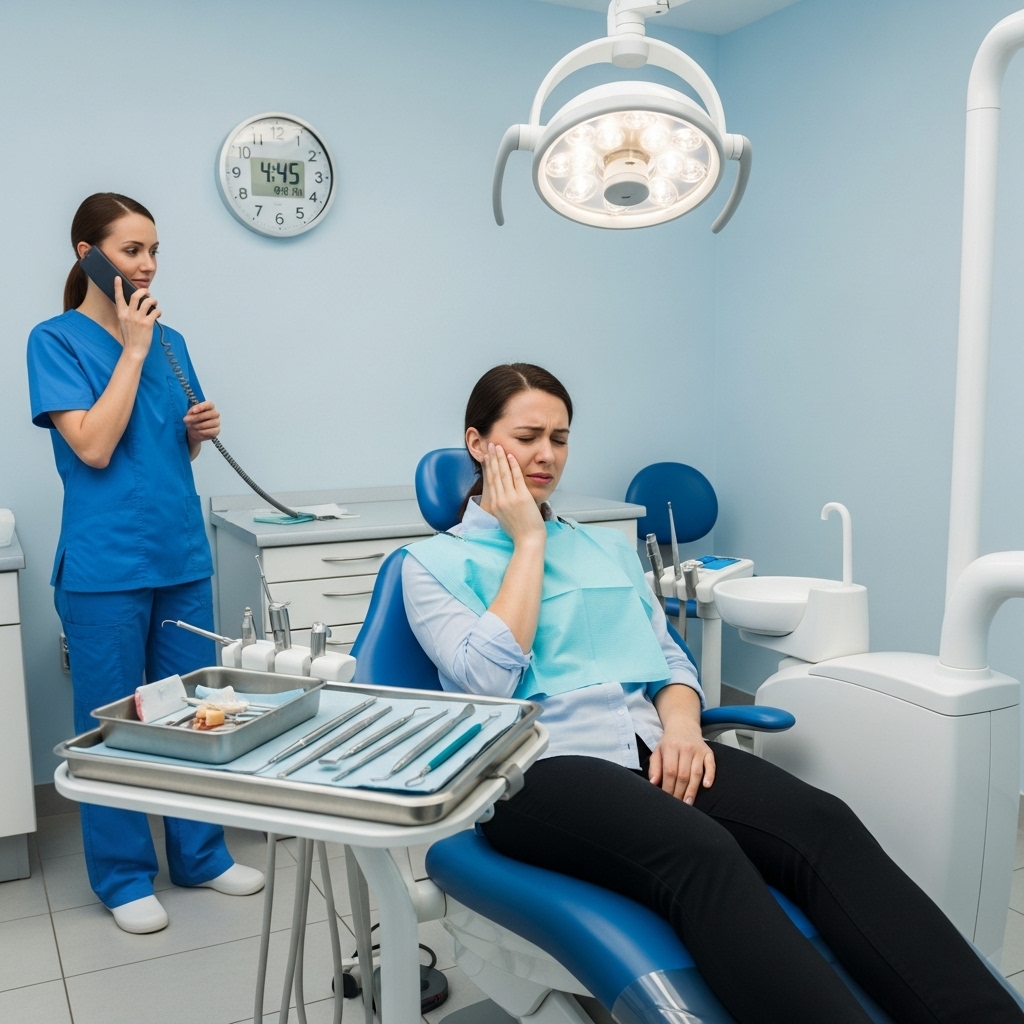Tooth pain has a way of announcing itself at the worst possible moments—late at night, early on a Sunday, or just as you settle in after a long day navigating Ventura Boulevard and the 101. If you are searching for a 24-hour option in Woodland Hills right now, you’re likely looking for calm, reliable guidance as much as immediate relief. Knowing how to interpret your symptoms, what you can safely do at home, and which steps will actually help you sleep tonight can transform a miserable evening into a manageable one. Start by reaching out to a trusted 24 hour dentist in Woodland Hills who can triage your situation and help you determine whether you need to be seen right away or first thing in the morning.
In the pages ahead, I’ll share practical insights drawn from years of helping neighbors in the Valley handle after-hours tooth pain. You’ll learn the difference between symptoms that can wait and those that need immediate attention, plus simple ways to reduce discomfort without risking further irritation. You’ll also get a realistic look at what “24-hour dental care” means in everyday terms and how local practices coordinate timely care, even outside typical business hours.
Reading Your Pain: Clues That Guide Next Steps
Tooth pain is a messenger, and the details matter. A sharp, fleeting zing to cold drinks often points to exposed dentin or gum recession. A deep, throbbing ache that worsens when you lie down may suggest inflammation within the tooth. Pain on biting could indicate a crack, a high spot on a filling, or an issue with the ligament that supports the tooth. Sensitivity that lingers after heat can be more worrisome and should be evaluated promptly. When you describe these nuances to a dentist, they can guide you to the right level of urgency and a plan that respects both your comfort and your schedule.
Pay attention to changes over time. Did the discomfort start as mild sensitivity and escalate quickly? Does it wake you at night or make eating difficult? Are there signs of swelling or a bad taste? These details help determine whether you need overnight attention, a first-thing appointment, or an interim step to calm the area until you can be seen.
Safe, Simple Measures to Ease Nighttime Pain
While you arrange care, a few tried-and-true strategies can reduce discomfort. Keep the area clean by gently rinsing with lukewarm water and brushing with a soft toothbrush. If a specific tooth is sensitive, avoid extreme temperatures and sticky or hard foods that could trigger sharp pain. Rest with your head elevated; this can reduce pulsing sensations that intensify when lying flat. Cold compresses on the cheek can help with swelling. Temporarily avoid chewing on the affected side until you understand the cause.
These measures are not cures, but they can make the night more bearable. The goal is to soothe the area without masking important clues your dentist will need for diagnosis. When in doubt, keep notes on what triggers the discomfort; that information is surprisingly useful during your evaluation.
What “24-Hour Dentistry” Really Looks Like Locally
In real life, round-the-clock dental care often involves a combination of on-call support, rapid next-day appointments, and coordinated referrals when immediate in-person treatment is essential. In Woodland Hills, families appreciate responsiveness more than buzzwords: a practice that answers your call, helps you interpret symptoms, and prioritizes timely care makes a world of difference. Even if definitive treatment happens during daytime hours, that initial contact provides relief through guidance and a plan you can trust.
When urgent intervention is needed—severe swelling, facial trauma, or uncontrolled bleeding—your dentist will direct you to the safest, fastest option for in-person care. Otherwise, a carefully scheduled early appointment paired with clear overnight instructions can protect your tooth and your sleep.
Common After-Hours Triggers and How They’re Addressed
Cracks can announce themselves with sudden pain to pressure or temperature. A dentist will examine the area, often using imaging and special tests, and stabilize the tooth to protect it from further damage. Deep decay or inflammation inside a tooth may require treatment to address the source and relieve pressure. Gum-related pain could stem from trapped food or inflammation; careful cleaning, soothing rinses, and targeted care usually resolve it. When multiple factors overlap, a methodical approach identifies the primary driver so care remains focused and effective.
It’s worth noting that stress and clenching often intensify nighttime symptoms. If you wake with sore teeth or jaw muscles, mention it during your visit. Adjustments to your bite or a custom nightguard can prevent a recurring cycle of discomfort.
Comfort, Communication, and Confidence
An excellent after-hours experience begins with how you’re treated the moment you reach out. Calm questions, clear instructions, and a nonjudgmental tone go a long way. You should feel that you have a partner who understands both the urgency of your pain and the practical realities—work the next morning, kids to get to school, and the unpredictable flow of Valley traffic. Great practices offer realistic options: immediate care if necessary, or a first-thing appointment with precise guidance for the interim.
Communication continues after your visit. Follow-ups ensure you’re doing well and give you a chance to ask new questions once the stress has eased. That continuity is part of what makes a dental home invaluable, especially when life throws after-hours curveballs.
Staying Ahead of the Next Late-Night Flare-Up
Once the immediate pain is addressed, prevention takes center stage. Routine checkups help catch small cracks, worn fillings, or early gum changes before they escalate into late-night emergencies. If you grind your teeth, a custom nightguard spares enamel and joints. If dry mouth is part of the picture—common with certain medications—strategies to keep tissues hydrated can reduce sensitivity and enamel wear. Your dentist will tailor these recommendations to your habits and health history, aligning practical steps with your everyday life in Woodland Hills.
Simple routines matter. Brush gently but thoroughly before bed, clean between teeth, and keep a small dental kit by your nightstand if that makes consistency easier. Small, sustainable habits are the foundation of comfortable, predictable nights.
When to Seek Immediate In-Person Care
Certain signs merit urgent evaluation without delay: swelling that spreads, difficulty swallowing, fever with dental pain, trauma that moves a tooth, or pain so severe you cannot function. In these cases, your dentist will help route you to the fastest, safest care and coordinate follow-up. When symptoms are significant but stable, a near-term appointment often provides the right balance of relief and practicality.
It’s normal to feel uncertain in the middle of the night. That’s why having a trusted practice to call is powerful. Even a brief conversation can turn confusion into a plan and help you rest until care is delivered.
Midnight to Morning: A Practical Timeline
Imagine the scenario: discomfort spikes around 11 p.m. You call, describe your symptoms, and receive guidance tailored to what you’re feeling. You spend the night with your head elevated, avoid triggers, and keep the area as clean as possible. At your early appointment, imaging and focused tests pinpoint the cause. You leave with relief and a clear next step, whether that’s a protective restoration, targeted therapy, or a simple adjustment. That arc—from midnight uncertainty to morning clarity—is what effective 24-hour care looks like in practice.
Along the way, you’re treated as a partner. Your questions are welcomed, your timeline respected, and your comfort prioritized. When you experience that level of care, late-night tooth pain loses much of its power over your day.
Frequently Asked Questions
How do I know if tooth pain can wait until morning?
If pain is manageable, does not involve swelling, fever, or trauma, and improves when you avoid triggers, a first-thing appointment is often appropriate. If pain is severe, keeps you from sleeping, or escalates quickly, reach out for guidance. Your dentist can help you decide the safest next step based on a few focused questions.
Why does tooth pain feel worse at night?
Lying down increases blood flow to the head, which can heighten pressure sensations inside teeth. Fatigue also lowers your tolerance for discomfort. Elevating your head, avoiding extreme temperatures, and keeping the area clean can reduce nighttime intensity until you’re evaluated.
What home measures are safe before I see a dentist?
Gentle rinsing, soft brushing, cold compresses on the cheek, and avoiding triggers are generally safe. Do not place aspirin on gums or teeth, and avoid extreme heat. Keep notes on what worsens or improves symptoms; that information helps your dentist diagnose efficiently.
Could clenching or grinding be causing my pain?
Yes. Nighttime clenching can stress teeth and supporting tissues, leading to morning soreness or sudden sensitivity. Your dentist can assess wear patterns and recommend a custom nightguard or adjustments that reduce strain and prevent recurring episodes.
What if pain radiates to my ear or jaw?
Referred pain is common because teeth, gums, and jaw structures share nerve pathways. Describe where you feel discomfort and when it changes. A careful exam will differentiate dental causes from jaw joint or muscle issues and direct the right treatment.
Is a cracked tooth always an emergency?
Cracks vary widely. Some require prompt stabilization to prevent progression; others are superficial and can be monitored. Pain with release after biting or sudden temperature sensitivity may indicate a more significant crack. Early evaluation protects the tooth and keeps care straightforward.
Can dry mouth make nighttime pain worse?
Yes. Reduced saliva—common with certain medications or mouth breathing—can amplify sensitivity and increase decay risk. Your dentist can suggest strategies to keep tissues hydrated and enamel protected, especially before bed when saliva naturally decreases.
Will I need to change my routine after treatment?
Most patients return to normal activities quickly, though you may be advised to avoid certain foods temporarily or use a protective device at night. Your dentist will outline simple, realistic steps that prevent a repeat late-night episode.
Rest Easier With Timely Care in Woodland Hills
You don’t have to face the night alone. Connect with a responsive Woodland Hills dental care team that can guide you through after-hours discomfort, prioritize relief, and get you back to feeling like yourself. With clear communication and practical planning, even stubborn tooth pain can be handled with calm, confidence, and care.





